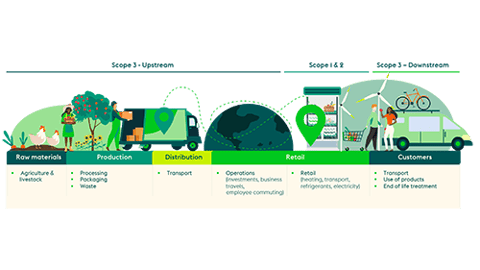Hussmann Debuts New Low-GWP Refrigerant Portfolio
Refrigeration company Hussmann is out with a new solution to help retailers meet the latest Environmental Protection Agency (EPA) rules related to low global warming potential (GWP) refrigerants. The recently-introduced Evolve Technologies portfolio provides a comprehensive suite of technologies that enable the use of eco-friendlier refrigerants, including R744 (carbon dioxide) and R290 (propane).
To ramp up for its Evolve Technologies solutions, Hussmann previously announced that it is expanding production capacity for transcritical CO2 refrigeration systems in its facility in Suwanee, Ga., and bolstering capacity for its self-contained propane product line.
[Read more: “Hussmann Scales Up to Help Retailers Meet New EPA Rules”]
The enhanced capabilities come as interest and demand are growing across the retail industry for low GWP refrigerants. After Jan. 1, 2025, the manufacture or import of products that use hydrofluorocarbons (HFCs) in certain refrigeration systems will be banned, and the use of higher-GWP refrigerants will be restricted in new systems in grocery stores and convenience stores. The phasedown of HFCs will continue over the next five years, with other rules for the grocers and c-store operators set to go into effect in 2026 and 2027.
For the 100-year-old Hussmann, now a subsidiary of Panasonic, the Evolve Technologies solutions are focused on the future of refrigeration systems. The launch is the latest in a series of innovations, such as the October 2023 introduction of a new all-in-one condensing unit and evaporator solution using the low GWP R290 refrigerant. That new Krack MicroDS and MicroSC Monoblock addresses EPA regulations with its innovative air and water-cooled design and reduces full store refrigerant charge by up to 95% versus HFC refrigerants.
Based in Bridgeton, Mo., Hussmann produces, installs and services refrigeration systems in more than 250,000 supermarket and c-stores in the United States.






